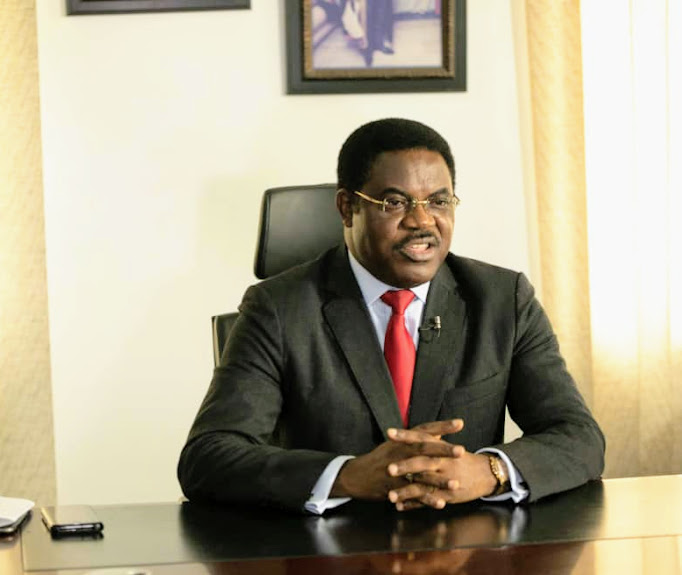Dr Dele Adesina, a Senior Advocate of Nigeria (SAN) has called for adequate respect for the Judiciary in Nigeria despite the observable lapses on the part of Judiciary.
Adesina made this call during his keynote speech at the 2024 Gavel International Annual Lecture held in Lagos over the weekend.
“Every civilised society needs a functional, efficient and effective judicial system. The Judiciary is the guardian of the Constitution and the protector of the fundamental rights of the people. It is the interpreter of all laws. It is also the maintainer of public order and public security. The Judiciary is the guarantee against arbitrariness and perhaps the insurance for a just and happy society. It occupies pivotal position in the administration of justice. It must be noted that the law and its practice remain one of the foundations of a civilised society. Law is the significant life wire for maintaining societal equilibrium and social justice. Law and its practice are the indispensable drivers and levers of developments”, Adesina stated.
The Learned Silk stated that “for every single case that justice appeared not to have been served, there are thousands of cases where justice have not been done but have been seen to be done. It is for this reason that I submit that the violent attack on the Judges and Justices of our Courts and the sustained blackmail going on against the entire judicial system at the moment is wrong and this cannot help this Nation or indeed anybody”.
The legal luminary asked whether the Judiciary is the last hope of the common man only. Adesina was of the view that the answer is no, from a jurisprudential standpoint.
“I like to believe that the common man here is used as a figurative expression only. The Judiciary ensures justice for all citizens in addition to its critical role in upholding the Rule of Law by keeping the other two arms of Government in check that is, the Executive and the Legislature. I submit that the Judiciary is the last hope of not only the common man, but also it is the last hope of the common, the uncommon, big and small, old and young, educated or illiterate, rich or poor as well Government and the governed”.
Adesina called upon the Media to uphold the integrity of the judicial system in the country.
“With regards to the Media and the Judiciary, the golden rule of practice, I submit, is that the media must not make any comment which will tend to prejudice a fair trial. This is without prejudice to their duty to hold Government accountable.
“The Media should be wary of this. Trial by the media of criminal matters prejudices the mind of the populace and makes them hold the Court in contempt and dishonour when it ultimately reaches a conflicting or different verdict. More often than not, allegations of compromise and corruption are made against the Judge. This is very unhealthy for the development of our legal system and judicial process.
“Notwithstanding this admonition, we read all manner of things attacking even the personality of the Judges and their judgments. In Nigeria today, it is common to see and hear both learned and unlearned people, literate and illiterate men and women, freely discussing and rendering opinions on matters that are pending before the Courts, including what should be the judgment on the matter. When the judgment of the Court goes contrary to the opinion earlier expressed in the media, the Judge, to them has taken bribe. They will hold steadfastly to that position which may be completely wrong in law. However, when the Judgment of the Court coincides with the perceived opinion of the society, they will say “Daniel has come to judgment”.
Meanwhile, the Publisher of Gavel International, Mr. Mustapha Kunle Ogunsakin, said it is time to start rebuilding trust between the citizens and the Judiciary.
Citing an incident that happened during the 2020 #EndSars” protests in which the mob set fire to the Lagos High Court, Ogunsakin said: “The court that should be held sacred, some people were bold enough to set on fire. For me, that shows mistrust and even hatred that some people have for the judiciary. It also shows that Nigerians do not see the judiciary or its symbol as belonging to them. For many Nigerians, the court represents an instrument of oppression. They don’t see as a place where they can get justice if oppressed. Their hope in the judiciary is almost non-existent.
“The powerful people within the society, particularly the politicians do not help matters. Their popular parlance whenever any issue arises is “go to court: suggesting that they control instruments of Justice and have the judges in their pockets.
“Can we begin to look at the ways and means through which hope can be restored? How about making our courts truly open by advocating real media coverage, I mean video recording of proceedings where the constitution permits? How about holding members of the legal profession to minimum standards of making the country first even in the defense of their clients?”
The public lecture which drew large gathering had Mr. Gbenga Oyebode, MFR, as the chairman of the occasion with Prince Julius Adelusi-Adeluyi as the Father of the Day.
-Alex Ekemenah


